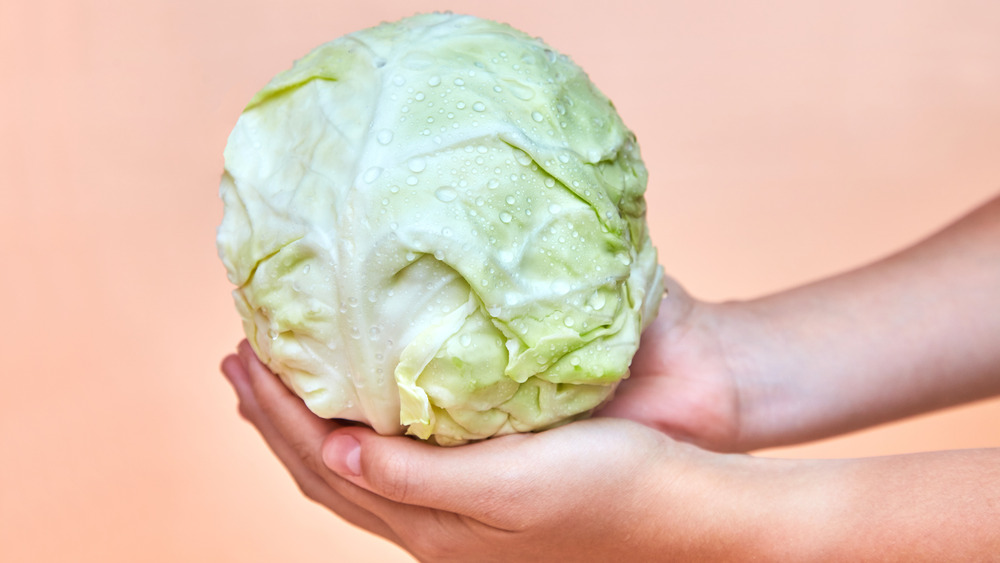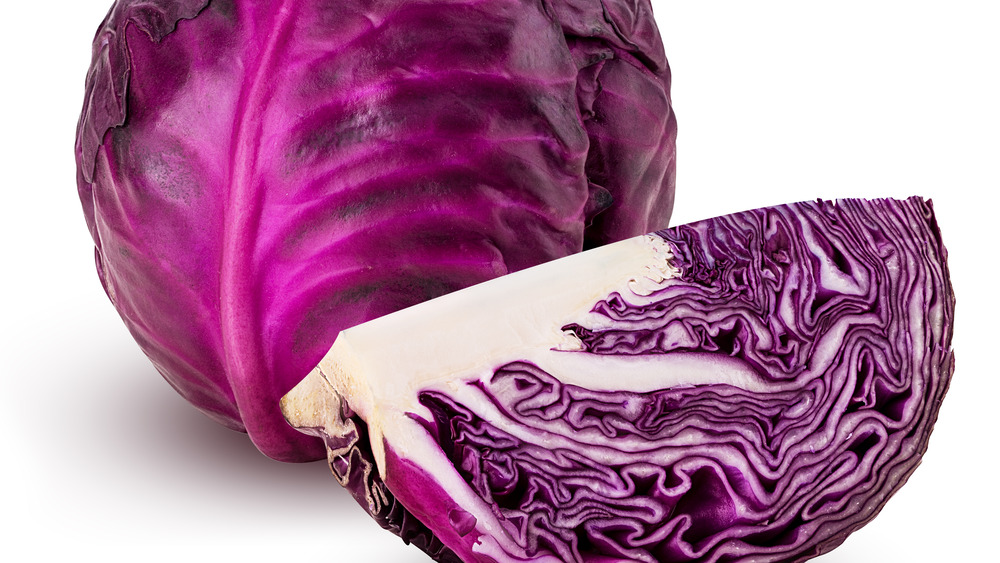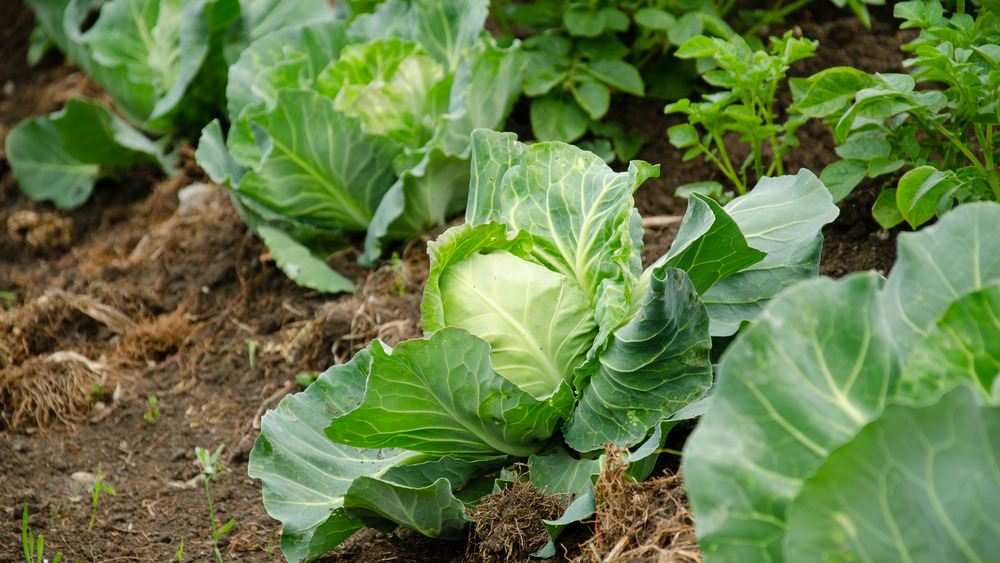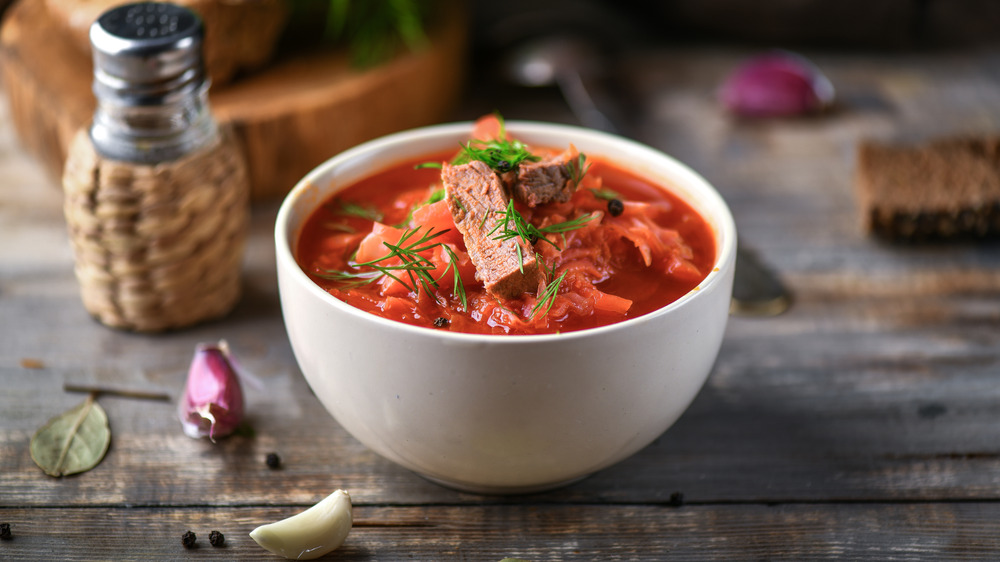Why You Should Think Twice Before Eating Cabbage
Cabbage is a vegetable that gets mixed reviews. For some, St. Patrick's Day wouldn't be complete without corned beef and cabbage, while others (including most of Ireland) would rather eat something else. There are also those who swear by cabbage soup for weight loss, while others are completely repulsed by the idea of such a diet. Whether or not you actually enjoy the taste of cabbage, however, there's one significant downside that everybody agrees on – cabbage has some less-than-socially-acceptable after-effects.
As holistic health and nutrition expert Piper Gibson, AHND, TND, BCDNM, FDN-P politely explained to Mashed, "Cabbage is not easily digested...too much cabbage can cause gas, bloating, and even diarrhea." In other words, eat too much and you're likely to experience (and inflict on unwary bystanders) some truly terrifying toots, fearsome flatulence, gnarly gas...you smell where we're going with this. As to why cabbage does such terrible things to your nose, it's because it's one of the notoriously gassy cruciferous veggies. These contain lots of insoluble fiber as well as the complex sugar raffinose, and together this combo is a lot for your gut (and everyone's nose) to handle.
Cabbage is still pretty nutritious, but be careful
Yes, that's quite some downside, or rather, backside. If you're dining solo, or perhaps in the company of anyone with an impaired sense of smell, you might still want to indulge in this "magical fruit" since, you know, the more you toot, the better you feel. Not to mention, cabbage may be one of the most diet-friendly foods you can find. Gibson says it's low in fat, calories, and carbs, and Medical News Today confirms that a half-cup serving of shredded cabbage has about 17 calories and 4 grams of carbohydrate along with one gram of protein.
Cabbage is also pretty darn nutritious. Gibson tells Mashed this vegetable is "a great source of vitamin C, which is essential for iron absorption, immune health, and collagen formation." She adds that cabbage also provides about 10 percent of the recommended daily amount of folate, a nutrient that helps produce red and white blood cells and assists in over 250 other bodily functions, Cabbage can also be a significant source of sulforaphane, a substance that Gibson says has "great detoxification and heart health benefits." Medical News Today adds that it contains diindolylmethane (DIM), a substance that may protect against radiation.
One more nutrient that cabbage is particularly rich in is vitamin K, something Gibson says "helps with blood clotting and wound healing." She does warn, however, that *If you are taking anticoagulants, the higher amounts of vitamin K can impact these medications' effectiveness."
You can grow your own cabbage
One of the best things about cabbage is how budget-friendly it is. Low Income Relief has it listed as one of their cheapest, yet most nutritious produce picks. If you want to save even more on your grocery bills, however, you could always try growing it yourself. Fresh-grown cabbage need not be just a summertime thing, though, since depending on your climate you may even be able to grow it year-round. As Gibson says, "Cabbage is an excellent winter vegetable and thrives in cold weather," and advises "if you are looking to keep your garden growing all year, add some cabbage."
Not only will home-grown cabbage be even cheaper than store-bought; it may also be safer and possibly even healthier. As Gibson points out, "Organic cabbage is best and will help you to avoid any toxic pesticides," and when you're growing it yourself, you'll know exactly what pesticides have and haven't been used. Even if you do have to resort to non-organic methods of pest control, though, don't worry too much – cabbage is on the Environmental Working Group's "Clean 15" list of vegetables that tend to be safe to eat even if they're not organically grown.
What's the safest way to eat cabbage?
Good to know that eating cabbage is relatively risk-free as far as exposing you to potentially harmful environmental chemicals, but is there a safer way to eat the stuff without any stinky side effects? Gibson says that how cabbage affects you depends to an extent on your gut health, saying "those with a healthy digestive system may be more tolerant of more significant amounts of cabbage." She does, however, suggest you stick with under a cup of cabbage per meal to avoid any unpleasantness.
Another suggestion Gibson has for reducing cabbage's gas-producing properties is to cook it, since cooked cabbage may not be quite as difficult to digest as the raw stuff. Bad news for coleslaw fans, but Gibson says she "spent some time in Ukraine and fell in love with borscht" and tells us that this beet and cabbage-based soup is now "my family's favorite way to get our cabbage in."



